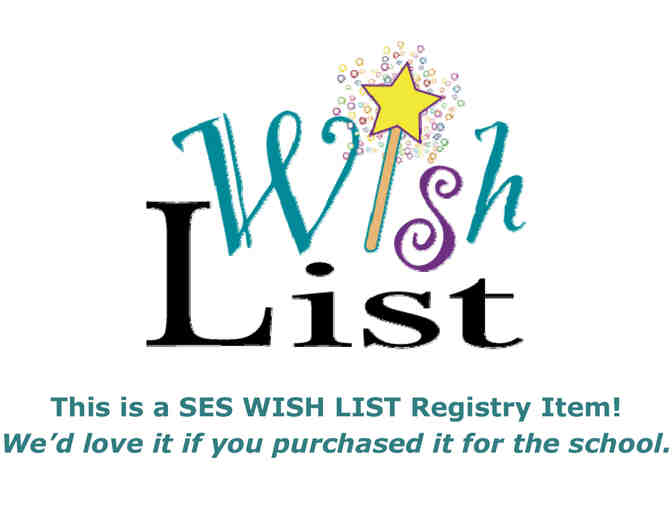Wish List Registry
WISH LIST REGISTRY: The Incredible 5-Point Scale
- Item Number
- 162
- Estimated Value
- 20 USD
- Buy Now Price
- 20 USD
- Sold
- Purchase History
Item Description
Help St. Elizabeth School Implement its SOCIAL THINKING Program with these WISH LIST REGISTRY Items!
Through the SES Bull & Oyster Roast's online auction, SES donors can “buy” items for the school, just like you might for a wedding or baby registry! Items, such as the one described below, help students during therapy sessions, in the classroom, and beyond. This year, our Wish List Registry is filled with curriculum notebooks, books, posters, and other items needed to help SES adopt a SOCIAL THINKING program school-wide. Social Thinking is an expansion of PBIS (Positive Behavior Interventions and Supports) and teaches students how their behavior directly impacts those around them. In other words, it teaches them to think beyond themselves and gives them a deeper understanding of those around them.
The Incredible 5-Point Scale
by Kari Dunn Buron and Mitzi Curtis
The Significantly Improved and Expanded Second Edition
Assisting students in understanding social interactions and controlling their emotional responses
This much-awaited, second edition of the wildly popular Incredible 5-Point Scale is, as the title suggests, "significantly improved and expanded." Using the same practical and user-friendly format as the first edition, Buron and Curtis let readers benefit from work done with the scales over the past 10 years, to result in refinements to the original scales, now considered "classics" in homes and classrooms across the country and abroad, as well as lots of new scales specifically designed for two groups of individuals: young children and those with more classic presentations of autism, including expanded use of the Anxiety Curve. Another welcome addition is a list of goals and objectives related to incorporating scales in students' IEPs. As in their other writings, the authors emphasize the importance of self-management and self-regulation, two evidence-based practices.
St. Elizabeth School stores data...
Your support matters, so St. Elizabeth School would like to use your information to keep in touch about things that may matter to you. If you choose to hear from St. Elizabeth School, we may contact you in the future about our ongoing efforts.
Your privacy is important to us, so St. Elizabeth School will keep your personal data secure and St. Elizabeth School will not use it for marketing communications which you have not agreed to receive. At any time, you may withdraw consent by emailing Privacy@frontstream.com or by contacting our Privacy Officer. Please see our Privacy Policy found here PrivacyPolicy.


